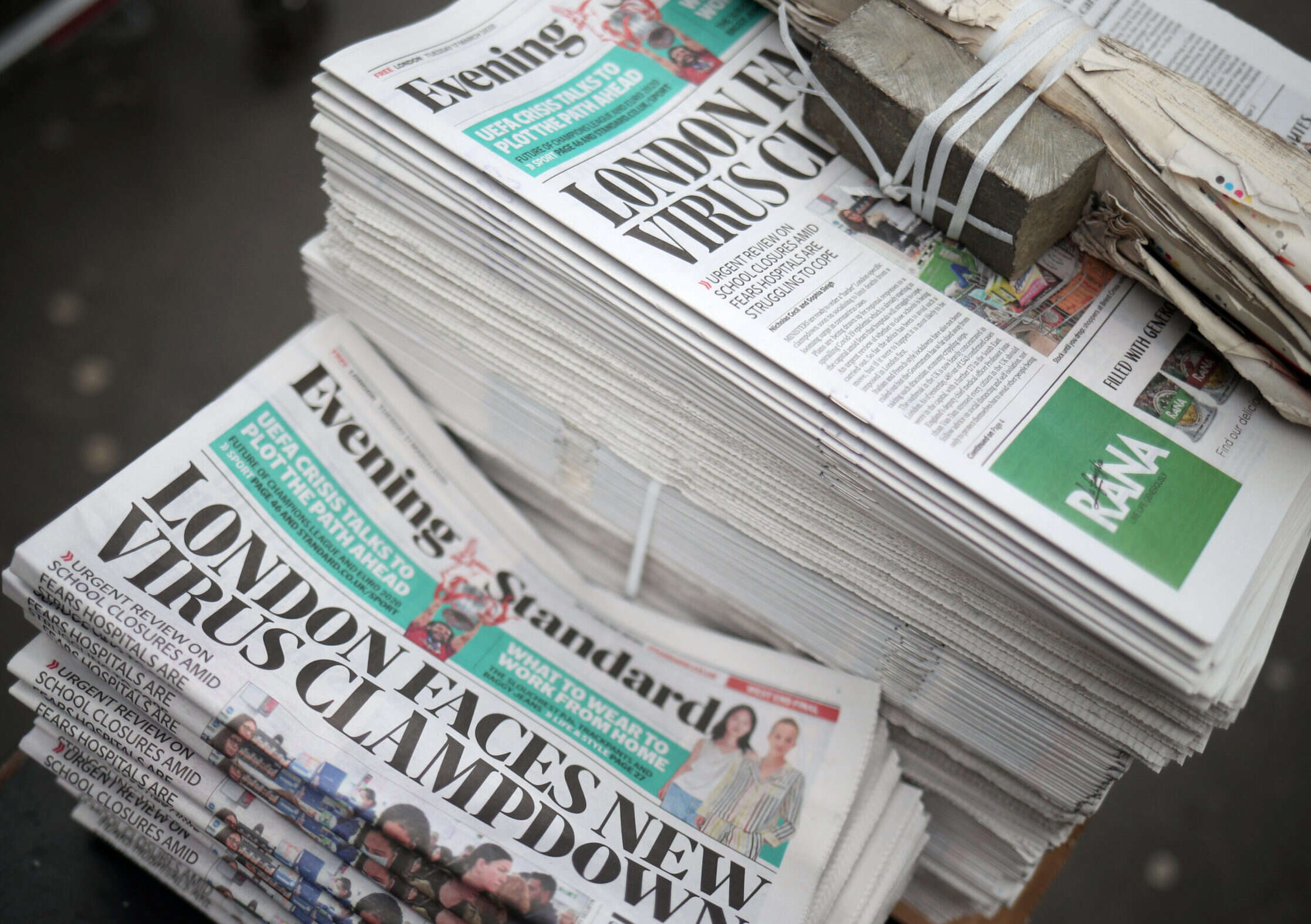
New Evening Standard editor Emily Sheffield takes over at a time of existential crisis for the free London newspaper, which has been pushed to near breaking point by the coronavirus pandemic.
The daily title has been forced to undergo a rapid digital transformation as lockdown measures destroyed its free distribution business model within days and the advertising market collapsed around it.
Sheffield will take over from George Osborne, who moves to the role of editor-in-chief after three years as editor, from next month.
Sheffield’s role includes turning the Standard into a “digital first news organisation”, according to the announcement revealing her appointment on Friday. It’s something of a Herculean task.
Before Covid-19 some bolstering of the Standard’s digital offering had taken place over the years – updates to its website and app, and perhaps most significantly the merger of its print and digital teams – but print was still king until the end of March this year.
The pandemic resulted in the Standard drastically reducing the number of copies it distributed from roughly 800,000 to almost half that – 423,285, according to ABC figures under lockdown in April.
The paper moved from handouts to home deliveries in an attempt to save its print edition. As a result it has not stopped printing during the outbreak, even when fellow London freesheet City AM was forced to press pause.
But it was forced to take further action to save its business, suspending its weekly ES Magazine supplement and furloughing a number of staff while others took pay cuts.
As Douglas McCabe of Enders Analysis told me recently: “The Standard’s biggest challenge is the decline in commuting into London.”
Because while lockdown measures may ease in the coming weeks and months, it will be a while before commuting is back to pre-pandemic levels – and even then it may never quite return to the way it was as companies embrace greater flexibility and home working.
London, which saw the highest number of coronavirus cases early on in the outbreak, “is going to be a tougher recovery than some other places because of the fear of the public transport system”, said McCabe.
Former Standard chief executive David Soutar, who stood down last month, has said the coronavirus represented an “unprecedented crisis” for the business, but the publisher had already been losing money in recent years.
In 2018, the latest available accounts, Evening Standard Ltd made a pre-tax loss of £11.6m on turnover of £63.9m. The year before it lost £11.8m on turnover of £65.4m. The road to recover was already a hard one.
One cynical and world-weary Twitter user wrote of Sheffield’s appointment that she is “the latest captain on the Titanic”. But the Standard has form when it comes to making drastic changes to keep it afloat.
The title went free in 2009 under then new owner billionaire Evgeny Lebedev, who had installed Geordie Greig as editor, after more than 180 years as a paid-for title, more than doubling its circulation.
Press Gazette called Greig an “unlikely revolutionary” at the time (and boldly put his head on Lenin’s body for the print edition splash). It’ll take another revolution to save it now.
Picture: Reuters/Hannah McKay
Email pged@pressgazette.co.uk to point out mistakes, provide story tips or send in a letter for publication on our "Letters Page" blog
